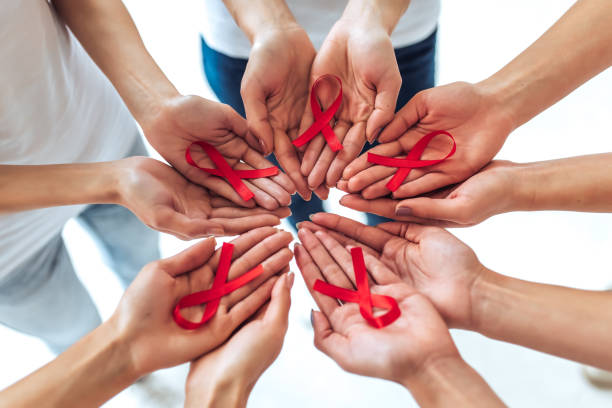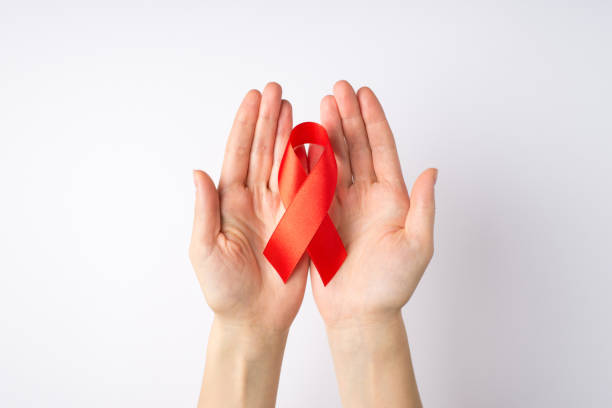HIV is a virus that weakens your immune system and makes it hard to fight off infections. It can also make your immune system so weak that it can’t fight cancers and other serious illnesses.

When your immune system is too weak to fight off infection, it can get sick with AIDS (acquired immunodeficiency syndrome). Luckily, most people who have HIV never develop AIDS because they receive effective treatment.
Sex
Sexual activity plays a key role in HIV transmission. It is mainly spread by having anal or vaginal sex without condoms or without taking medicines to prevent or treat HIV.
Using condoms correctly can reduce your risk of contracting HIV by up to 80%. The right way to use condoms includes using the correct lubrication, like water-based or silicone-based lubricants, click here.
If you are in a relationship with someone who is HIV-positive, it is important to get tested for HIV before having sex. Talk to your partner about getting tested and use the CDC’s GetTested locator to find an HIV testing location near you.
People at high risk of contracting HIV should also take medications to decrease their chance of getting the virus, such as pre-exposure prophylaxis (PrEP). Vaccinations against hepatitis A and B and human papillomavirus (HPV) can also help lower your chances of getting these diseases.
Drugs
Drugs affect the way the body and brain work, and can change your mood, awareness, thoughts and feelings. They may also lead to addiction or dependency.
Pre-exposure prophylaxis (PrEP) is medicine taken by people at risk of HIV to prevent them from getting the disease. It is highly effective at preventing HIV infection from sex and injection drugs when taken as prescribed.
PEP is short-term therapy that can be started within 72 hours of a possible exposure to the virus. It can include 2 or 3 anti-HIV pills taken every day for 4 weeks.
These drugs block a protein that HIV needs to get inside healthy cells and replicate. They are called integrase strand transfer inhibitors or INSTIs.
These medications are used to treat HIV infections that are resistant to other drugs. Some are injected and others are given as a pill. They can be given to adults and children.
Environment

The environment is an interplay of physical and biological systems that influence human health. It includes natural systems, such as oceans and freshwaters, air, land, and climatic factors.
People often think of the word “environment” as anything that’s not the system, but it really refers to the complex interactions between living systems. As humans, we’re very much part of the natural world, and our impacts on it are enormous.
In addition to being a source of life-sustaining resources, the environment can also act as a barrier to HIV transmission. This relationship between HIV/AIDS and ecosystem degradation can lead to multiple self-reinforcing cycles, including the cycle shown in Figure 1.
It’s clear that a holistic approach is required to reduce both vulnerability and environmental pressures. This requires structural interventions that address HIV/AIDS and ecological losses simultaneously. These can include poverty reduction strategies that strengthen sustainable use of local resources.
Prevention
Despite advances in treating and controlling HIV, people remain at risk of infection. This is due to HIV weakening the immune system, allowing germs and disease to get through the body’s defences.
The most common way for HIV to spread is through unprotected vaginal or anal sex. Taking certain precautions can lower this risk considerably.
Treating everyone living with HIV fairly and with understanding, and ensuring that they are treated as equals, is essential for preventing and ending the spread of HIV. This includes eliminating discrimination, sexism, transphobia and other forms of stigma.
Prevention strategies can be a combination of biomedical, harm reduction and community-based programs that target multiple causes of HIV transmission. These approaches have proven to be effective in reducing HIV incidence and prevalence.
Conclusion:
For instance, oral pre-exposure prophylaxis (PrEP) is a daily pill that prevents the HIV virus from getting into the bloodstream. In addition, there are longer-acting prevention methods such as a vaginal ring that prevents HIV for two months.


